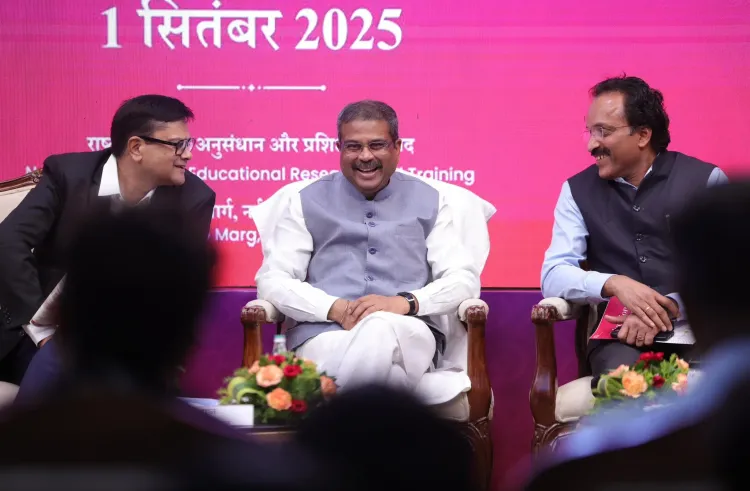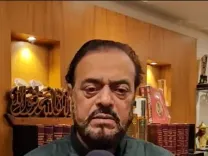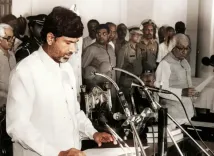Is NCERT a Change Leader in Education?

Synopsis
Key Takeaways
- NCERT is recognized as a change leader in Indian education.
- Critical thinking and creativity are essential for student development.
- Diksha 2.0 enhances digital learning and accessibility.
- Multilingualism is encouraged to promote critical thinking.
- Educational reforms are pivotal for achieving a Viksit Bharat by 2047.
New Delhi, Sep 1 (NationPress) Referring to NCERT as a transformational leader, Union Education Minister Dharmendra Pradhan remarked on Monday that fostering creative thinking skills in students is essential for achieving a Viksit Bharat by 2047.
During his address at the 65th Foundation Day of the National Council of Educational Research and Training (NCERT), Pradhan emphasized that the organization has the potential to ignite the minds of the youth as a change leader through a reform-driven and technology-enhanced approach.
He expressed his belief that NCERT will spearhead educational reforms, instigate a significant shift in both teaching and learning processes, and be instrumental in realizing the vision of a Viksit Bharat.
At the event, Pradhan also unveiled several initiatives, including Diksha 2.0, and released a book honoring the life and contributions of 100 notable figures from Odisha titled ‘Utkal Jananinkara Sujogya Santana’.
Wishing NCERT continued success, Pradhan described it as an iconic entity integral to India's educational framework.
He noted that NCERT has been a cornerstone of the educational landscape, shaping the futures of countless students with unmatched dedication and commitment.
Referring to NCERT not merely as an institution but as a ‘Gyan-Kumbh’, he underscored its vital role in nation-building through education since its establishment.
Pradhan urged NCERT to embrace its identity as a change leader by adopting a fresh perspective—one that is reform-oriented, technology-centric, and aligned with global best practices.
The Minister highlighted that the goal of building a Viksit Bharat by 2047 can only be achieved if students are motivated to cultivate critical and creative thinking skills.
He called on NCERT to promote multilingualism to enhance critical thinking in the Amrit Peedhi and to focus on converting knowledge into competency.
Emphasizing the government's commitment to technology-driven education, Pradhan elaborated on DIKSHA 2.0, the revamped digital platform that is fully adaptable and compatible with various devices.
This platform offers structured lessons, adaptive assessments, and AI-enhanced tools like Read Aloud and translation capabilities for text files in 12 Indian languages.
Additionally, he shared testimonials from students who have benefited from DIKSHA, highlighting how the platform is enabling personalized education and empowering both teachers and learners.





